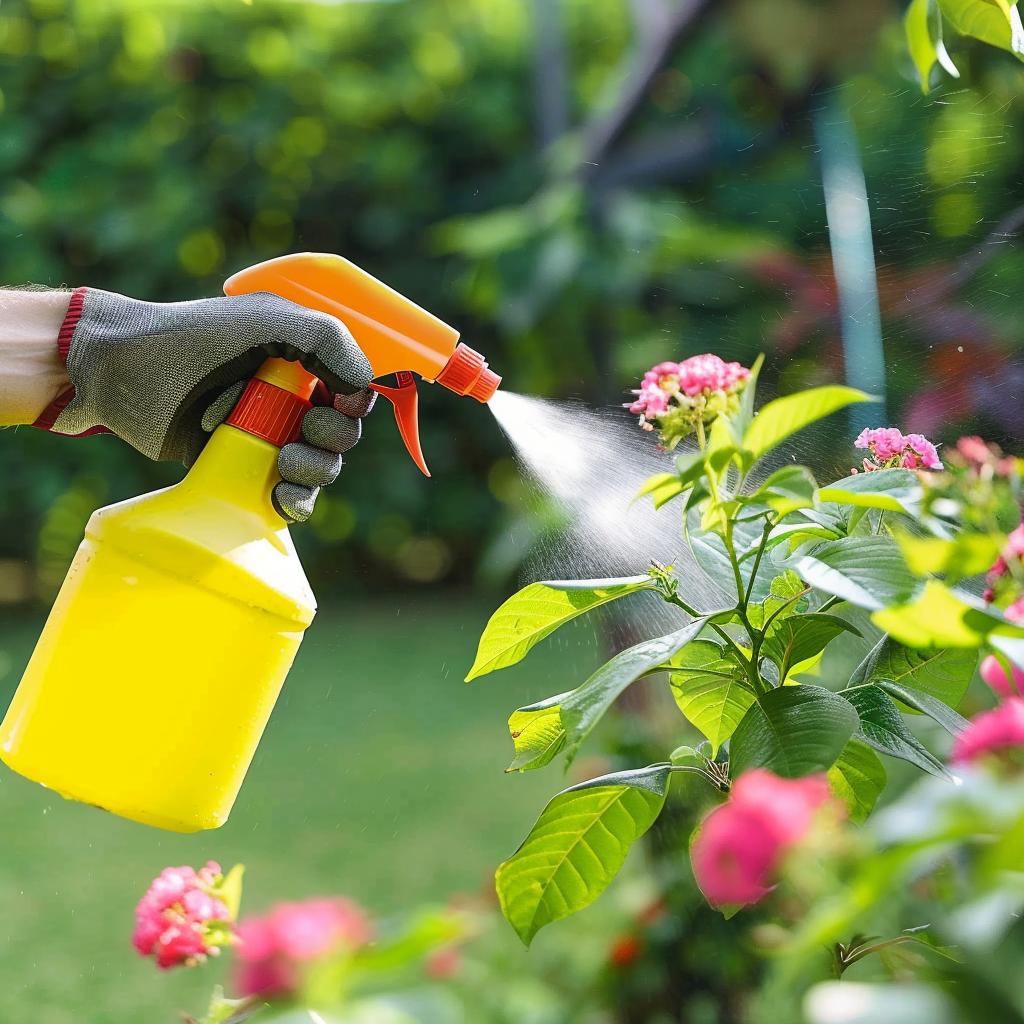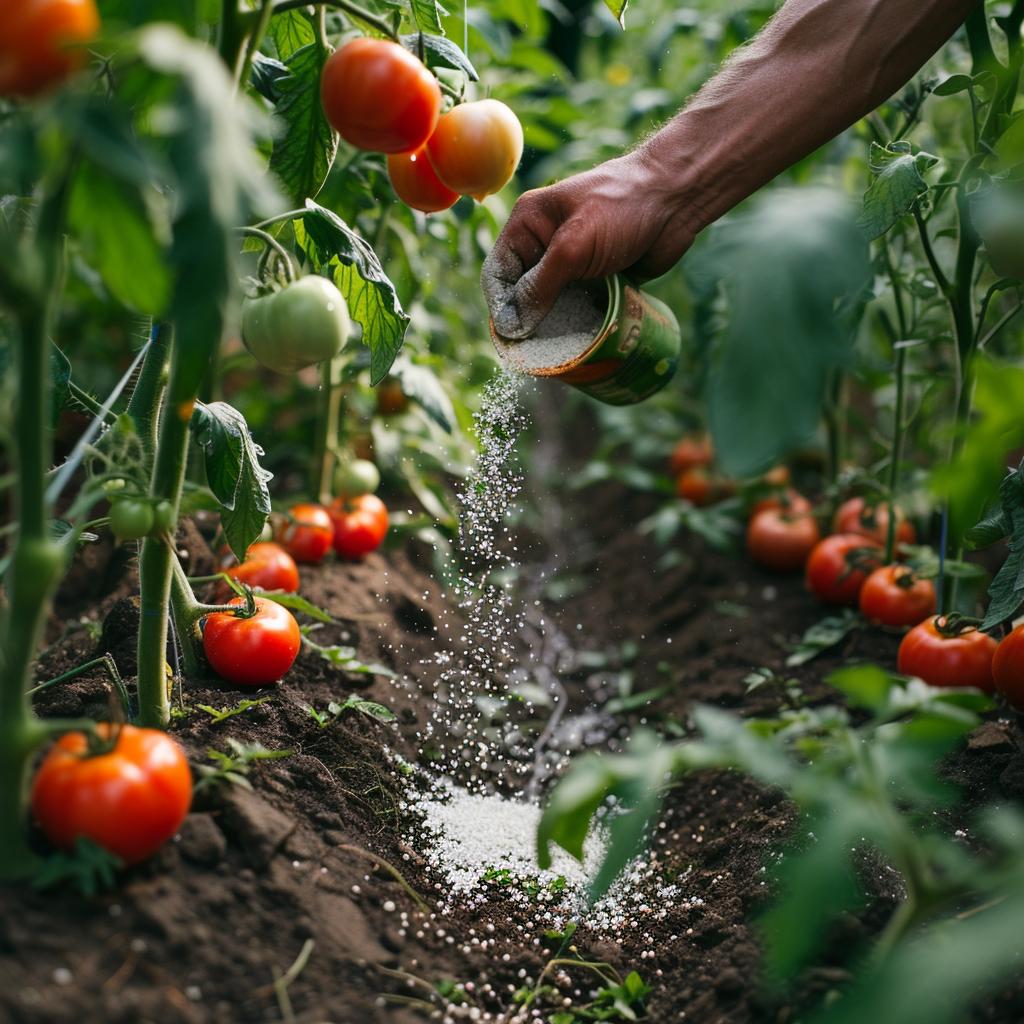Gardening is a fulfilling activity that connects us with nature and rewards us with beautiful landscapes and bountiful harvests. However, even the most experienced gardeners encounter challenges such as weeds, pests, and fungal infections. Fortunately, a common household item—vinegar—offers simple and effective solutions. This article delves into how vinegar can tackle eight prevalent gardening problems, providing a natural, eco-friendly alternative to chemical products.
1. Weed Management
Weeds are a persistent nuisance in any garden, competing with plants for nutrients, water, and sunlight. Traditional chemical weed killers can be harmful to the environment and non-target plants. Vinegar, however, presents a natural and safe alternative.
How It Works: Vinegar contains acetic acid, which can draw moisture out of plant tissues. When sprayed directly onto the leaves of weeds, vinegar causes them to dehydrate and die. The higher the concentration of acetic acid, the more effective it is at killing weeds.
Application:
- Ingredients: White vinegar (5-20% acetic acid concentration).
- Method: Fill a spray bottle with vinegar and spray it directly onto the leaves of the weeds on a sunny day. Ensure that the vinegar only contacts the weeds, as it can harm desirable plants.
- Frequency: Repeat as necessary, particularly after rain, which can wash away the vinegar.
2. Pest Deterrent
Pests like snails, ants, and aphids can wreak havoc on your plants, stunting their growth and spreading diseases. Vinegar can serve as an effective natural pest repellent, promoting healthier plant growth without the use of harsh chemicals.
How It Works: The acetic acid in vinegar is unappealing to many pests, acting as a deterrent and preventing them from infesting your plants.
Application:
- Ingredients: White vinegar, water.
- Method: Mix equal parts of vinegar and water in a spray bottle. Spray the solution on plants and around the base to deter pests. For ants, spray the mixture directly on their trails.
- Frequency: Use as needed, especially after rain or watering.
3. Adjusting Soil pH
Soil pH is crucial for the health and growth of plants. While most plants thrive in slightly acidic to neutral soil, some prefer more acidic conditions. Vinegar can help adjust the pH of alkaline soils, making them more suitable for acid-loving plants like blueberries, azaleas, and rhododendrons.
How It Works: The acetic acid in vinegar lowers the soil pH, making it more acidic.
Application:
- Ingredients: White vinegar, water.
- Method: Mix one cup of vinegar with a gallon of water. Pour the solution around the base of plants that require more acidic soil.
- Frequency: Apply every few weeks and monitor soil pH to avoid making it too acidic.
4. Mold Inhibition
Mold and mildew can stunt plant growth and pose health risks to both plants and humans. Vinegar, when diluted properly, can effectively inhibit mold growth, ensuring healthier plants.
How It Works: The acidity of vinegar disrupts the cellular structure of mold, preventing it from spreading.
Application:
- Ingredients: White vinegar, water.
- Method: Mix one part vinegar with three parts water. Spray the solution on mold-affected areas of the plants.
- Frequency: Apply weekly or as needed to keep mold at bay.
5. Odor Neutralization
Gardens can sometimes develop unpleasant smells from compost, animal droppings, or stagnant water. Vinegar can neutralize these odors, creating a more pleasant environment.
How It Works: Vinegar’s acetic acid neutralizes odor-causing bacteria and organic compounds.
Application:
- Ingredients: White vinegar, water.
- Method: Dilute vinegar with water (1:1 ratio) and spray it on odor-prone areas. For compost piles, pour the mixture over the pile to reduce smells.
- Frequency: Use as necessary to maintain a fresh-smelling garden.
6. Tool Cleaning
Clean garden tools are essential for preventing the spread of diseases and ensuring the longevity of your tools. Vinegar serves as a natural cleaner, removing dirt, bacteria, and fungi from garden tools.
How It Works: The acetic acid in vinegar breaks down rust and organic residues on tools, disinfecting them in the process.
Application:
- Ingredients: White vinegar.
- Method: Soak garden tools in a container of undiluted vinegar for 30 minutes to an hour. Scrub with a brush to remove any remaining dirt or rust, then rinse with water and dry thoroughly.
- Frequency: Clean tools after each use or as needed to prevent buildup.
7. Limescale Removal
Limescale buildup can occur on garden pots, irrigation systems, and surfaces due to hard water. This buildup can hinder plant growth and the efficiency of garden equipment. Vinegar can effectively remove limescale.
How It Works: The acetic acid in vinegar dissolves the calcium carbonate deposits that form limescale.
Application:
- Ingredients: White vinegar.
- Method: Apply vinegar directly to the limescale-affected areas and let it sit for a few hours. Scrub with a brush or cloth and rinse with water.
- Frequency: Treat limescale as it appears to prevent significant buildup.
8. Enhancing Plant Health
Regularly using diluted vinegar can boost overall plant health by preventing diseases, stimulating growth, and increasing plant vitality.
How It Works: The mild acidity of diluted vinegar can improve nutrient uptake in some plants and deter pathogens.
Application:
- Ingredients: White vinegar, water.
- Method: Mix one tablespoon of vinegar with a gallon of water and use it to water plants occasionally.
- Frequency: Use monthly or as needed, observing plant response to avoid over-acidification.
Conclusion
Vinegar is a versatile, cost-effective remedy for a variety of gardening issues. From weed management to enhancing plant health, vinegar offers an environmentally friendly alternative to chemical solutions. However, it is crucial to use vinegar correctly to avoid potential negative effects on plants and soil. Proper dilution and targeted application are key to reaping the benefits of vinegar in your garden.
By incorporating vinegar into your gardening routine, you can tackle common problems naturally and effectively, contributing to a healthier, more vibrant garden. Whether you are dealing with persistent weeds, troublesome pests, or the need to adjust your soil’s pH, vinegar provides a simple and sustainable solution. So, the next time you face a gardening challenge, consider reaching for that bottle of vinegar—it might just be the solution you need.



